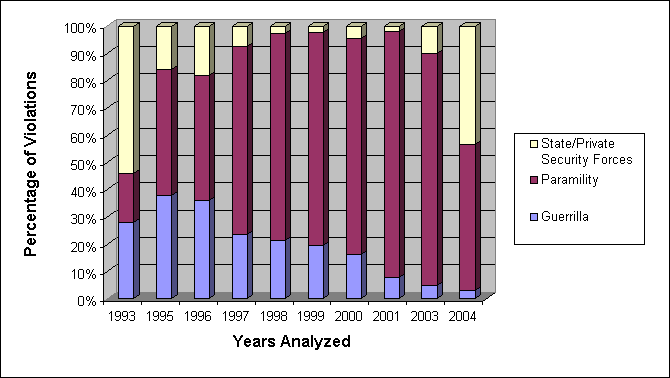On the political front, the Mexican working class has never been more divided. Mexico’s labor unions are mobilizing for the national presidential, congressional and gubernatorial elections on July 1, but they are doing so in support of a variety of rival parties and candidates left, right, and center. There is no incumbent, because Mexico’s Constitution forbids presidential reelection after one six-year term, so President Felipe Calderón’s name will not be on the ballot.
Why López Obrador?
Book Review: Arturo Ramos and Maria Teresa Lechuga, ¿Por qué López Obrador? Mexico: Cultura, Trabajo y Democracia/Ceiba/Comuna Oaxaca. Second edition. 2011. 232 pages.
Strike Wave Sweeps Brazil: No Sector Unaffected; A New Union Movement On the March
Workers in Brazil—in heavy industry, services, the public sector, and agriculture—are involved in a series of strikes and mass protests such as the country hasn’t seen in decades. . Driving the new labor upsurge is the strength of the country’s economy, the powerful position of unions in the society, and the rising inflation. In 2007 and 2008, Brazil’s economy grew at a rate of 5%, and though in the depths of the crisis in 2009 it shrunk by .02%, last year the economy grew again at a rate of 10%.
Talking about race and Haiti
Though these two pieces about education, one about the terrible way the US is destroying any possibilities for a real system of public education in Haiti, the other reasons the author is NOT talking about race, do not make this connection, they point to the fact that education in the US has to be seen in the context of international policy, and in particular US imperialism, in which racism is pro
Blues on the Border: Legendary Rock Guitarist Javier Batiz Plays and Sings for 'My Beloved and Beautiful Tijuana'
Javier Batiz, the great Mexican rock-and-roll guitarist, played and sang last week in a concert that embodied and gave voice to everything that is most wonderful about Tijuana and the U.S.-Mexico border region.
Good Neighbor Imperialism: U.S.-Latin American Relations under Obama

THE EXPECTATIONS FOR CHANGE in U.S. policy toward Latin America when Barack Obama was elected president seemed as high among most governments and citizens of Latin America as the expectations of the voters in the United States who cast their ballots for him. Many analysts believed that the relationship between the region and the United States had reached a new low point during the two terms of Obama’s predecessor, President George W. Bush.
Marx and the non-Western World
This truly path-breaking book goes against the grain of the conventional wisdom which reduces Marx to an Eurocentric and economistic thinker; as Douglas Kellner comments, Kevin Anderson shows that Marx “is the sophisticated and original theorist of history some might not have ever expected him to be.” Analyzing a variety of Marx’s writings, including his journalistic work written for the New York Daily Tribune as well as unpublished material on non-European societies, it brings to the fore a global theorist whose soci
Co-opted?
Venezuela, a moderately prosperous nation with rosy relations with both the United States and global capital, was an unlikely setting for a socialist renaissance. The 1998 election of Hugo Chávez appeared to be nothing more than a parliamentary victory for a bombastic social democrat, surprising but hardly epochal.
"We Want To Be Heard!"

Uniformed agents of Mexico’s Federal Investigative Agency (AFI for its initials in Spanish) yanked three inmates out of their cells in the minimum-security state prison at Ixcotel, Oaxaca in November, 2008 and transported them to San Bartola Coyotepec, another Oaxaca state prison, for "interrogation." One of the three inmates, Victor Hugo Martínez, told activist friends that the federal investigators beat him and threatened to "make your family pay" if he didn’t confess in full to crimes of which he’
Cockroft: Mexico’s Revolution Then and Now
James D. Cockroft’s "Mexico’s Revolution Then and Now," written for the centennial of the Mexican Revolution of 1910, is a radical scholar’s guide to radical Mexico and well worth the read. Both a scholar and a political activist, Cockcroft writes as a partisan of oppressed and exploited and an opponent of capitalism.
Teachers in Oaxaca: A Review
Diana Denham and the C.A.S.A. Collective, Teaching Rebellion: Stories from the Grassroots Mobilization in Oaxaca (Oakland: PM Press, 2008) and Peter Kuper, A Sketchbook Journal of Two Years in Oaxaca (Oakland: PM Press, 2009).
Metal Workers & Miners Unions Consider Merger
Unions Representing Workers in Canada, Mexico qnd U.S. Explore Merger:
Would Create International Union of One Million Metal Workers and Miners
The United Steelworkers (USW), which represents 850,000 workers in Canada, the Caribbean and the United States, and the National Union of Miners and Metal Workers (SNTMMRM), known as the Mineros, which represents 180,000 workers in Mexico, have announced plans to explore uniting into one international union. The agreement to begin exploration of a merger was signed on June 21.
Foosball with the Devil: Haiti, Honduras, and Democracy in the Neoliberal Era

From the perspective of Honduran and Honduranist scholars, the most common reference to Haiti is as a point of hemispheric comparison. Whether measuring GDP per capita, state legitimacy and citizens’ political tolerance, or corruption, the phrase “Honduras ranks last…after Haiti” seems to be de rigueur. This is no coincidence: the policies and structures that have effected extreme poverty and highly concentrated wealth in both places are very much connected.
Help Haitian Popular Radio Mobilize the Haitian People after the Earthquake
Below is an appeal from Mark Dow for the Haitian popular radio work of New Politics writer Sony Esteus and his colleagues in the wake of Haiti’s devastating earthquake. I hope you can make a contribution, even if it is modest. Send a donation to our office, New Politics, 155 W. 72nd Street, Rm 402, NY, NY 10025 or go give through PayPal on our website www.newpol.org. As always, gifts to New Politics are tax deductible; please indicate that the donation is for Haiti. To contact Mark directly, write him at mdow@igc.org
In solidarity,
Joanne Landy, member, New Politics editorial board
Human Rights and the Colombian Government: An analysis of state-based atrocities toward non-combatants

The Colombian civil war, similar to other Latin American conflicts over the past 50 years, has had a large portion of non-combatants mortally affected by the horrors of conflict. However, those killed or injured in Colombia are not indirect results of the discord but are in-themselves strategic military targets (Stokes, 2005; Lernoux, 1982). The reasoning behind invoking this aggression against the unarmed Colombian populace is due in part to the ever-increasing strength of the primary insurgent movement within the country.
Mar del Plata, Argentina: The (People's) Summit of the Americas
On November 2-5, as two dozen heads of state gathered in Mar del Plata, Argentina for a hemispheric summit to negotiate trade agreements, thousands of global justice activists, I among them, participated in a concurrent "People's Summit" ("cumbre de los pueblos") or "counter-summit" ("contracumbre"). The official summit meetings were moved to Mar del Plata, a seaside resort which is a five-hour bus or train trip from Buenos Aires, to deter mass protests.
The Politics of George Clooney’s Help for Haiti Telethon
I totally agree with Jesse Lemisch’s astute comments about George Clooney’s extravaganza and its conspicuous avoidance of anything that might be construed as “political.” Of course, in the midst of a colossal disaster, this feel-good spectacle of entertainment icons is inherently political, rife with intended and unintended consequences. First of all, it is hard to separate celebrity magnanimity from self-promotion.
George Clooney's Haiti — and Beyond
George Clooney (currently in “Up in the Air”) organized on short notice a technically and musically fine two hour fund-raising telethon, “Hope for Haiti,” which was broadcast on January 22 on most networks, many cable channels, on the Web, and both in and beyond the US. Here are two samplers of the music: one and two.
Oaxaca Uprising
"Ulises nos decia: 'ni marchas ni plantones'. Aqui le demostramos que somos mas cabrones."
("Ulises told us: no marches and no protests. Here we'll show him that we're more badass than he is.")
The World Social Forum and the Emergence of Global Grassroots Politics
[This is an expanded and documented version of an article that appeared in New Politics, no. 42.][1]
News update: Mexican government to meet with electrical workers, mediators
The Mexican Secretary of the Interior will meet with the Mexican Electrical Workers Union (SME) and a group of mediators tonight (December 16) some months since President Felipe Calderón liquidated the state-owned Light and Power Company, seized the facilities, and fired of the 44,000 workers. The union, which has sought in the courts the return of all workers to their jobs, has more modest goals for these negotiations, according to general secretary Martín Esparza.
